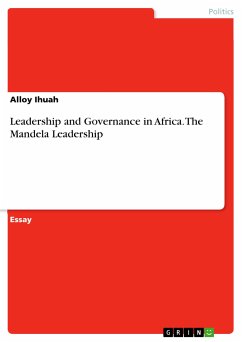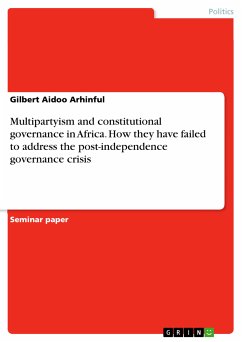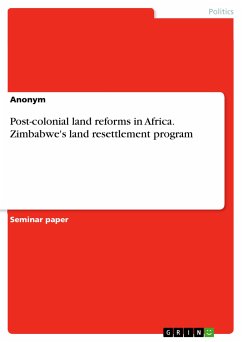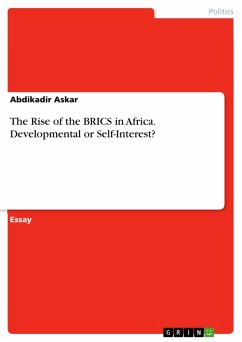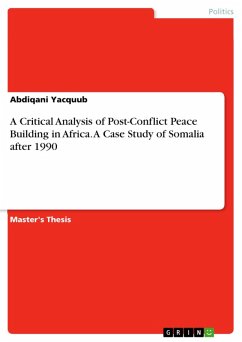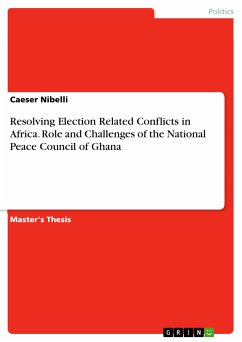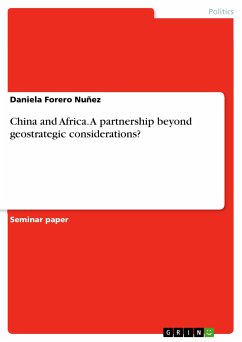Essay from the year 2021 in the subject Politics - Region: Africa, , language: English, abstract: This assignment is supposed to provide a portrait of Mandelas leadership and to break down leadership lessons for Africa. Good leadership and governance are key to sustainable human institutions. In Africa, Nelson Mandela stood out as an African icon and an international leader amidst the challenges of the south African environment. The disconnection between the rulers and the ruled suggests that African nations can develop only when the leadership question is rightly settled. Using the African democratic average, Bewaji draws the examples from Tanzania and Libya, and South Africa may be added to make a point. While acknowledging the giant strides of these and a few other African countries, the recent profound changes in North Africa and the fragmented political space in Libya and Egypt in particular, it is not far from the truth to say that Africa countries are surely governed less by a people oriented philosophy of development. In many African states, the democratic culture of inclusive participation, constitutionalism, the rule of law, human rights and accountability; the trampoline of democratic consolidation quickly became cumbersome with tyranny of the minority becoming the order of the day. The argued thesis here is that, sustainable democracy is a factor of how well the leadership transits from knowledge to wisdom. Tolerance, widespread participation, political consensus are necessary conditions for democratic consolidation though, they do not in themselves consolidate a democracy if and when there is no responsible and quality leadership which itself results from self-knowledge. The logic of development can only be expressed through the creative application of wisdom that is anchored on the aims of governance.
Dieser Download kann aus rechtlichen Gründen nur mit Rechnungsadresse in A, B, BG, CY, CZ, D, DK, EW, E, FIN, F, GR, HR, H, IRL, I, LT, L, LR, M, NL, PL, P, R, S, SLO, SK ausgeliefert werden.

